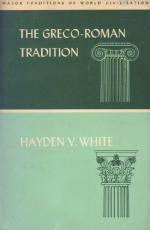|
This section contains 4,028 words (approx. 14 pages at 300 words per page) |

|
SOURCE: “Narrativity and Historical Representation,” in Poetics Today, Vol. 12, No. 3, Fall, 1991, pp. 591–605.
In the following excerpt, Rigney examines questions of narrativity in The Content of the Form and concludes that White's historiographic interpretation does not sustain a persuasive argument.
In an exuberant passage written in 1966, Roland Barthes celebrated the universality of narrative (le récit). Narrative may be manifested in any number of different forms, he wrote, and may be communicated through any number of different media (film, painting, theatre), but it is to be found in every culture, at every period, in every place: “international, transhistorique, transculturel, le récit est là, comme la vie” (1977 [1966]: 8). The recognition that “narrative” is a cultural phenomenon extending far beyond the realm of literary genres opens up exciting prospects for narratological exploration. But the price of such narratological expansionism may be a corresponding difficulty in defining the specific object of study...
|
This section contains 4,028 words (approx. 14 pages at 300 words per page) |

|


